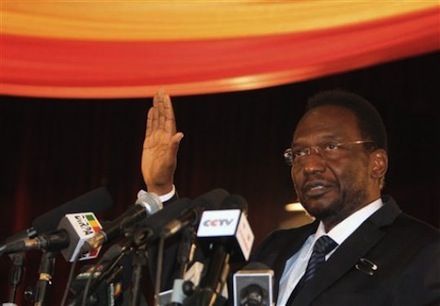When Dioncounda Traoré decided to run in Mali’s April 29 presidential election, he had no idea he would be sworn in as president — on April 12, nonetheless.![]()
But the president of the national assembly and president of the Alliance for Democracy and Progress found himself in precisely that position as he was sworn in as interim president Thursday, following a coup on March 21 that saw the removal of Amadou Toumani Touré, who had served as president of the west African country since 2000 and was set to step down in advance of the planned presidential election.
In the wake of general international condemnation and further unrest in the north of Mali — northern Tuareg rebels, encouraged by the opportunity of the coup, declared their own nation of Azawad last week — coup leaders stepped down in favor of Traoré, who has been tasked with organizing new elections within 40 days.
Captain Amadou Haya Sanogo, who organized the coup from within the military as a result of frustration with the relatively soft-touch approach of Touré’s government to the northern uprising, will likely go down in Malian history as one of its most incompetent actors, having served as a catalyst for accelerating the very movement he hoped his coup would squash. The coup simultaneously transformed the image of his nation from a poster child of democratic stability into an international pariah. Pretty staggering for less than a month. It will be up to Traoré to begin the process of cleaning up that mess.
Although the coup has caused massive instability in Mali and perhaps set the cause of Malian national unity back years, there is hope that the interim government can restore democracy in a one-time success story in Africa, and certainly without the bloodshed that accompanied a similar coup in Cote d’Ivoire in 2011.
